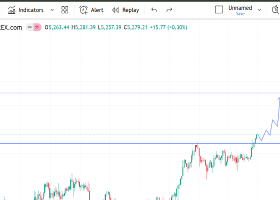On Tuesday the greenback rose to a more than one-year high against a basket of other major currencies, while the euro remained pressured amid growing expectations that the European Central Bank will announce additional easing measures.
The
euro has come under heavy selling pressure in recent sessions amid
mounting speculation that the ECB will implement fresh measures as a way
to shore up long term inflation expectations after data showed that the
annual rate of euro zone inflation slowed to a five year low in August.
Thus, EUR/USD reached lows of 1.3110, the weakest level since September 2013 and was last down 0.08% at 1.3114.
Meanwhile, concerns that sanctions against Russia would act as a drag on growth in the euro area mounted after data on Monday showed that manufacturing activity in the bloc slowed last month.
The dollar advanced to seven month highs against the yen, with USD/JPY climbing 0.54% to 104.90. The US currency was advanced by weakness in the euro and by gains in Asian equities markets overnight, which curbed investor demand for the safe haven yen.
Investors were looking ahead to the latest U.S. employment report, due for release on Friday, for further indications on the strength of the recovery in the labor market, a key factor in deciding the future path of monetary policy.
Elsewhere, GBP/USD was down 0.46% to 1.6529, the lowest since March. The pound sterling came under pressure earlier in the session after the latest opinion polls showed that support for Scottish independence is gaining ground ahead of a referendum due to take place on September 18. The pound shrugged off data showing that activity in the U.K. construction sector expanded at the fastest rate in seven months in August, pointing to a continued strong recovery in the sector.
AUD/USD was down 0.41% to a one week low of 0.9291 after the Reserve Bank left rates unchanged earlier Tuesday and said that the overvalued Australian dollar is weighing on efforts to support growth.
Elsewhere, NZD/USD fell 0.52% to 0.8332, while USD/CAD added 0.40% to trade at 1.0913.
Official data showed earlier Tuesday that Switzerland’s economy stagnated in the second quarter, with growth dragged down by falling exports and lower construction spending.
On a year-over-year basis, the Swiss economy grew 0.6%, missing expectations of 1.7% and slowing from 2.1% in the previous quarter. USD/CHF was close to 10-month highs at 0.9205.



